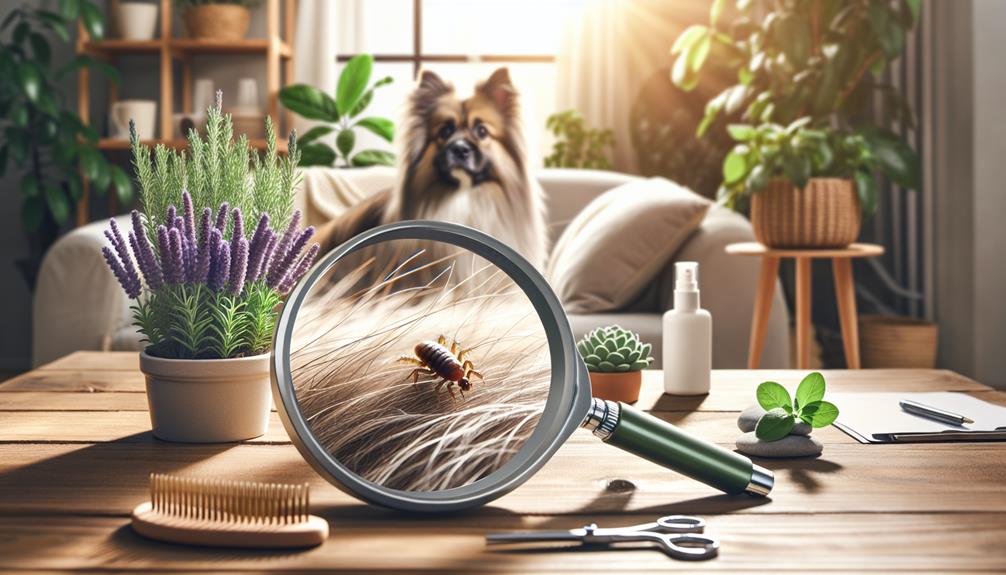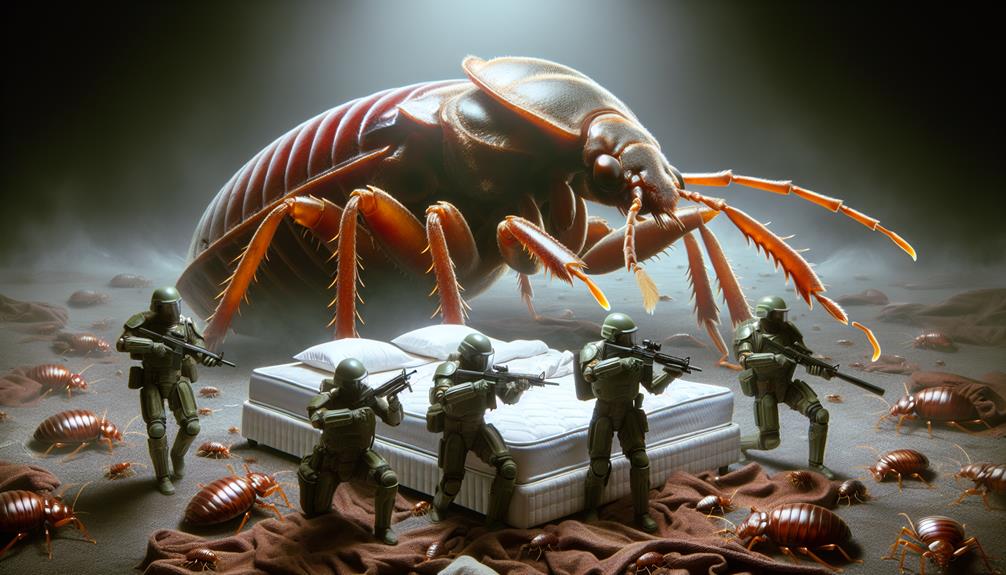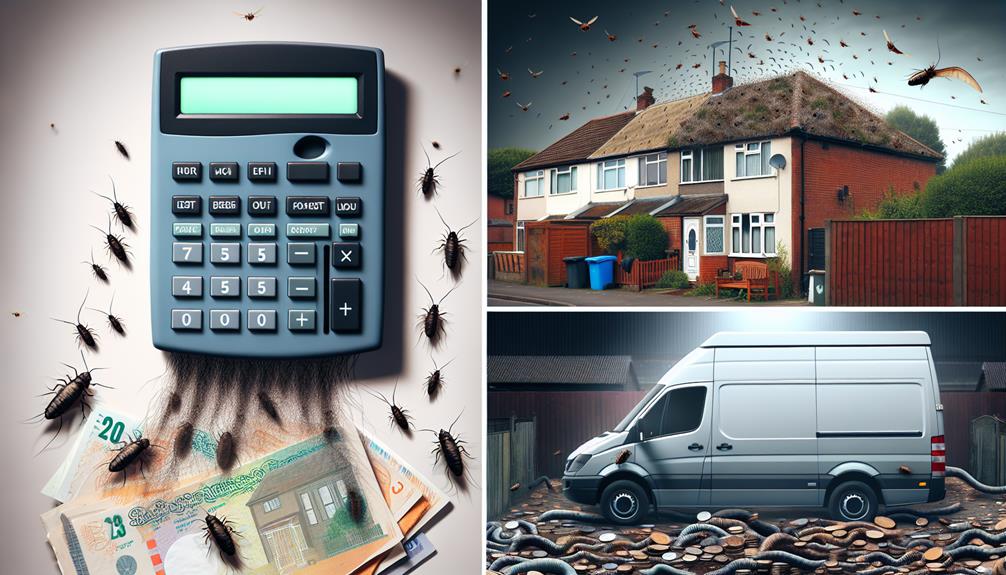Table of Contents
Introduction to Fleas
They are a common nuisance that many homeowners have to deal with. These tiny, blood-sucking parasites can cause a lot of discomfort and health issues for both humans and pets.
The Evolution and Nature of Fleas
The Physical Characteristics of Fleas
They are tiny insects that have evolved to become expert parasites. They have flat bodies designed to live on the fur, feathers, or hair of their hosts. Their strong claws and powerful back legs help them latch onto their hosts and suck blood using their specialized mouthparts.
Fleas vs Bed Bugs: Spotting the Difference

Fleas and bed bugs are often confused due to their similar appearance. However, there are key differences between the two. They are smaller and are most likely to be found outdoors in tall grass, on pets, pet bedding, or carpeting inside homes. Flea bites resemble a cluster of mosquito bites and begin to itch within an hour.
How Fleas Enter Your Home
The Role of Pets in Flea Infestations
The most common way for them to enter a home is through pets. They live outside, often in tall grass, and are attracted to the body heat, carbon dioxide, and vibrations that mammals emit. Once a flea has hitched a ride on a pet, it uses its specialized, straw-like mouth to drink its blood. They also often lay eggs on their host, which can fall off and hatch in dog or cat beds, furniture, and carpets.
Fleas and Wildlife: An Unseen Threat
Even if you don’t have pets, you can still get them. They often enter your garden and homes via wildlife. They can spread diseases like murine typhus and parasites, such as tapeworms.
The Dangers of Flea Infestations
Diseases and Parasites Spread by Fleas
They are not just a nuisance; they can also pose a health risk. They can spread diseases like murine typhus and parasites, such as tapeworms. That’s why it’s important to catch flea infestations early, take care of them, and make sure they’re gone for good.
How to Get Rid of Fleas
Treating Your Pets
To get rid of them, administer flea medication to your pets. Veterinarian-approved flea collars, oral medications, and topical treatments all work well to halt the growth and reproduction cycle of them that hitch a ride on your pet, helping to take care of the problem at its source before they can gain a foothold in your home.
Cleaning Your Home and Garden
You should also eliminate garden debris and waste where they live. This includes leaf litter, rock piles, wood piles, overgrown hedges, and long grass. Additionally, keep wild animals away from your home. Don’t feed feral cats or other animals that might be carrying them.
The Role of Pest Control Professionals in Flea Elimination
Unfortunately, flea eggs that hatch into larvae enter a pesticide-resistant cocoon where they can lie in wait as a pupa for months. This makes them a tough pest to get rid of. If they become a problem in your home, your best bet is to seek help from pest control professionals.
Conclusion: Keeping Your Home Flea-Free
In conclusion, dealing with them can be a challenging task. However, with the right knowledge and measures, you can keep your home flea-free. Remember, prevention is always better than cure. So, keep your pets treated, and your home clean, and be vigilant about potential flea infestations.
FAQs about Fleas
- What attracts fleas to my home?
They are attracted to the body heat, carbon dioxide, and vibrations that mammals emit. They are also attracted to areas with high humidity and temperatures. - Can I get fleas even if I don’t have pets?
Yes, They can enter homes via wildlife. They can also be brought in on clothing or other items. - What diseases can fleas spread?
They can spread diseases like murine typhus and parasites, such as tapeworms. - How can I prevent fleas from infesting my home? You can prevent flea infestations by regularly treating your pets with flea medication, keeping your home and garden clean, and avoiding contact with wild animals that may carry them.
- What should I do if I have a flea infestation? If you have a flea infestation, it’s best to seek help from pest control professionals. They have the knowledge and tools to effectively eliminate them from your home.
You may also enjoy reading this article
Was This Article Helpful?
- Please provide feedback and comments to help us improve our content.
- Share your experiences and any additional tips you have for dealing with pests.
Share this Post




Comments 2
Wow, fantastic blog layout! How lengthy have you ever been running a blog for?
you made running a blog glance easy. The overall glance of
your website is excellent, let alone the content! You can see similar
here sklep
Wow, marvelous weblog layout! How long have you ever been running a blog for?
you make running a blog look easy. The full glance of your website is fantastic, let
alone the content! You can see similar here e-commerce